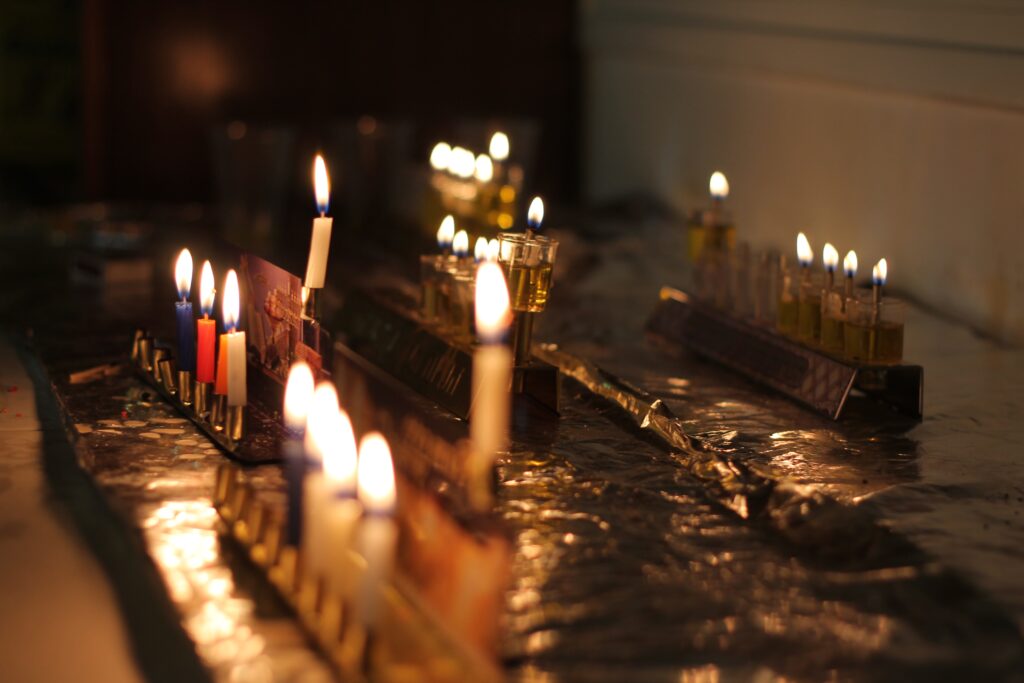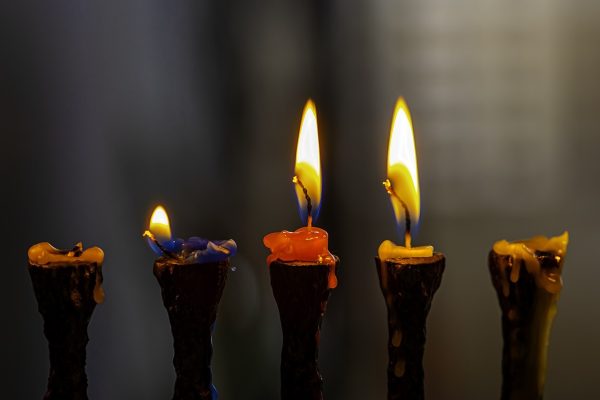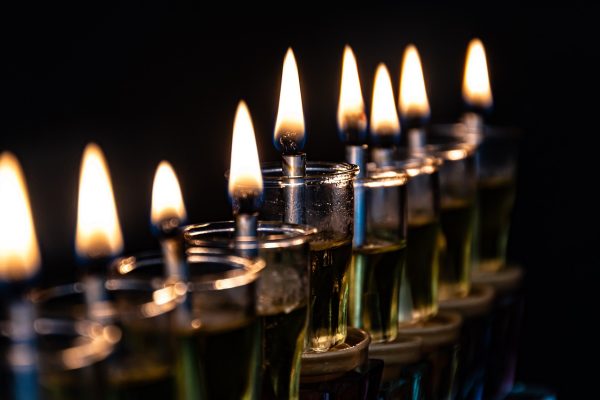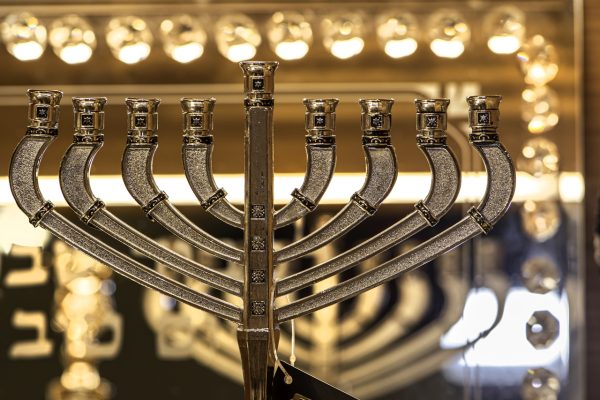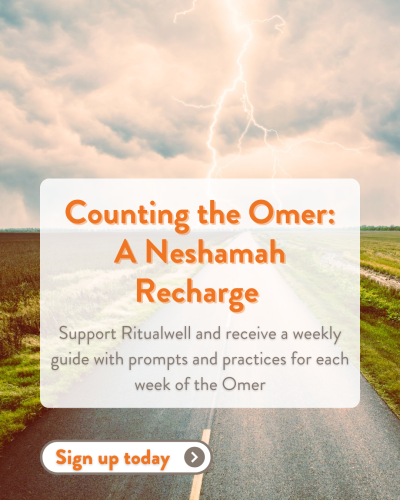‘Twas about the year one-sixty-four
Before the Common Era
Jews in Palestine lived under
King Antiochus of Syria
Greek was the culture of the day
In music, books and art
Science and philosophy
(They sure were living smart)
It seemed a little like, in fact,
America today
Where people live and learn and love
In many different ways
But in a quest for greater power
The king decided, “No.
You all must live the Greek way
Your God has got to go.”
Demanding that they bow instead
To all the gods of Greece
Some let him bring the statues in
(They only wanted peace)
These Jews, they didn’t want to fuss
Or fight the king’s decree
Remember, life was pretty good
In 164 B.C.E.
But Mattathias, the High Priest
Of the Jews in Modi’in,
Told his people they must fight and
Not let the idols in
He had five sons—and Judah, one
Of this Hasmonean family
They formed a Jewish army
And were called the Maccabees
It wasn’t easy though, to find
Too many Jews to fight
So many folks were living well
To them it seemed all right
But the Maccabees were strong at heart
And faith gave them the power
They sent a message far and wide
Do not despair or cower
For heaven and the future’s sake
We must arise once more
Against a cruel oppressor
And this we will assure
The Almighty will protect us
We fight in the name of God
We do not bow to idols
Or to kings of flesh and blood
The Maccabees fought bravely
Against the armies of the king
And in the end, the Jews had won
But no time yet to sing
They marched into Jerusalem
Up to that sacred place
The Temple where they worshipped God
Had suffered much disgrace
The altar was demolished
And the holy vessels, smashed
The menorah too was on the ground
The whole place had been trashed
They got to work to clean it up
And made new holy urns
Behold, they found some oil
And spectacularly it burned
For eight full days they celebrated
The Temple’s dedication
On Hanukkah, as it was called,
They sang psalms of salvation
The menorah shone so brightly
And their voices rose in song
The flame inside their hearts was warm
As faith continued, strong
~ ~ ~ ~ ~ ~ ~ ~
I wonder if you could imagine
This happening in your day
That somebody would come along
And tell you how to pray
And if they did, what would you do?
Do you think that you’d give in
And simply go along with them
Forgetting what has been
Or would you, I pray, remember
How in days of long ago
The small determined army
Stood and fought a mighty foe
For the miracle of Hanukkah
Is a lesson that we learn
That it isn’t only oil but
The flame of faith that burns
So when you do remember
May it fill you up with pride
Knowing that you’ve got
A little Maccabee inside

